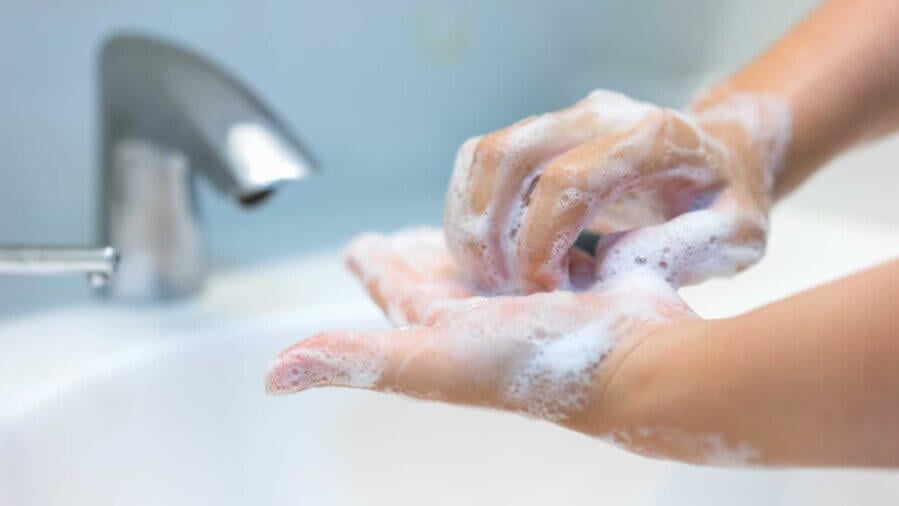A recent study conducted by experts from the University of Sheffield reveals that gentle cleansers are just as effective as harsh soaps in killing viruses, including the coronavirus. Healthcare professionals often opt for skin-friendly cleansers instead of harsh soaps or alcohol-based hand sanitizers to treat or prevent irritant contact dermatitis, a common skin disease characterized by redness, swelling, dryness, and damaged skin.
During the COVID-19 pandemic, the incidence and severity of irritant contact dermatitis among healthcare professionals rose from 20% to 80%. While gentle cleansing products are widely used for handwashing, there has been limited evidence demonstrating their antiviral efficacy against viruses such as the human coronavirus, herpes simplex virus, norovirus, and influenza.
The University of Sheffield’s Sheffield Dermatology Research (SDR) group conducted tests on various handwash products, including antibacterial soap, natural soap, foam cleansers, and bath wash products. The researchers investigated their ability to kill both enveloped viruses (like human coronavirus and influenza, which have an additional layer of structural protection) and non-enveloped viruses (such as norovirus and adenovirus).
The findings, published in the journal Frontiers in Virology, indicate that gentle cleansers effectively kill enveloped viruses, while non-enveloped viruses show resistance to both skin-friendly cleansers and harsh soaps.
Dr. Munitta Muthana, the lead author of the study from the University of Sheffield’s Department of Oncology and Metabolism, emphasizes that frequent handwashing with soap and warm water for 20 seconds has been a crucial preventive measure against the spread of COVID-19. However, for healthcare professionals who wash their hands numerous times during a 12-hour shift, this practice can have unintended adverse effects.
Irritant contact dermatitis not only inflames, blisters, and cracks the skin, increasing the transmission of bacteria and viruses, but it can also lead to non-compliance with personal protective equipment (PPE) and inadequate handwashing due to fear of worsening symptoms. The disease significantly impacts workplace productivity.
Dr. Muthana states that substituting harsh soaps with milder wash products, such as gentle cleansers, has shown promising results in combating enveloped viruses, including the human coronavirus. This finding is particularly encouraging for individuals whose occupation puts them at risk of irritant contact dermatitis. The study also reveals that the addition of moisturizers to protect the skin does not hinder the antiviral activity of the products, meaning there is no need to use excessively harsh products to kill viruses.
Notably, the study found that non-enveloped viruses, including the highly resilient norovirus (commonly known as the winter vomiting bug), demonstrated greater resistance to all types of handwashing products tested, regardless of whether they were harsh chemical substances or milder solutions. Even when the exposure time of norovirus to the handwashing products was increased from 20 seconds to one minute, the virus remained unaffected, except when exposed to bleach. However, bleach-based hand washes are not feasible due to their corrosive nature, which can cause significant harm to the skin.
While good hand hygiene practices are crucial in preventing the spread of many viruses, they are insufficient in controlling the spread of norovirus. Measures such as isolation and disinfecting surfaces with bleach prove more effective in preventing the transmission of norovirus. Further research is needed to determine whether heavily diluted bleach-based hand washes, safe for use on the skin, can be developed as an option.


